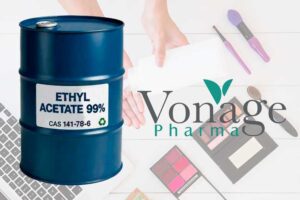Introduction
The field of opioid-based pharmaceuticals is experiencing pivotal regulatory and clinical changes in Thailand. With opiate medicines remaining vital for pain relief, palliative care, and opioid use disorder (OUD) therapy, Thailand’s commitment to Opium GMP Manufacturing is essential for ensuring both patient safety and international quality compliance.
This post provides an in-depth exploration of Thailand’s evolving policy landscape in 2025, the stringent requirements for Good Manufacturing Practice (GMP) accreditation, and practical implications for pharmaceutical providers. Additionally, we showcase Vonage Pharma’s compliant product portfolio: Opium Tincture 1% API, Opium Tincture 1% Bottle, and Opium Tincture Powder.
Regulatory Context: Recent Changes in Narcotics Law
In April 2024, the Thai Ministry of Public Health introduced a significant regulatory breakthrough. A ministerial notification now permits the production and use of category 5 narcotics — including Papaver somniferum (opium poppy) compounds — for medical treatment and research, under strict Thai FDA licensing. Previously, any clinical use of opium products, even in research, was criminalized. Now, provided manufacturers hold a valid license, Opium GMP Manufacturing for medical products can proceed legally (tilleke.com).
- Production, not Import: Only domestically produced, FDA-licensed formulations are permitted. Importation remains strictly prohibited.
- Scope: This includes opium alkaloids and tinctures, unlocking new opportunities for clinical research and improved medical access.
Thailand’s Good Manufacturing Practice (GMP) System
Evolution and International Influences
Since 1979, Thailand has maintained progressively higher pharmaceutical manufacturing standards. Critical milestones include:
- 2001: Full adoption of WHO-GMP guidelines.
- 2011: Implementation of ASEAN GMP and alignment with the Pharmaceutical Inspection Co-operation Scheme (PIC/S) (picscheme.org).
- 2012: Overseas manufacturers require explicit Thai FDA GMP accreditation — the compliance bar is higher for Non-PIC/S members.
As of 2025, Thai manufacturers, including those producing opium-based APIs and finished dosages, must comply with these consolidated standards:
- GMP Certificates are valid for two years (local) or three years (overseas).
- Over 100 documentation items for PIC/S applicants; over 200 for Non-PIC/S, reinforcing rigorous scrutiny.
- Inspections/renewals: All sites are regularly scheduled for audits and must maintain documentation in both Thai and English for cross-verification (tilleke.com).
Steps for Opium GMP Manufacturing Licensing
- FDA Approval Required: Each opium formulation — including extracts, solutions, or powders — must be first approved as a medicinal drug.
- Comprehensive Dossier: Plant master file, batch records, flowcharts, CAPA programs, analytical validation, and site inspections are compulsory.
- Language and Presentation: Certain documents must be translated into Thai, and manufacturers may need to deliver in-person presentations to regulatory panels.
- CAPA Rigour: Corrective and Preventative Action (CAPA) plans are meticulously reviewed; incomplete or unconvincing responses can result in application rejection or delayed audits.
ASEAN and Global Integration
Thailand’s system is harmonized under the ASEAN Mutual Recognition Arrangement (MRA), meaning local GMP is accepted across the region, and Thai-registered opiate pharmaceutical products benefit from easier regional distribution. However, only ten overseas PIC/S manufacturers had secured accreditation as of the most recent reporting, underscoring Thailand’s strict stance and the burden on foreign suppliers.
Opium GMP Manufacturing: Statistics & Market Insight
Although comprehensive market statistics on opium pharmaceuticals are scarce, multiple indicators demonstrate increasing regulatory oversight and market expansion:
- In 2023, Thailand reported over 300 pharmaceutical GMP manufacturers, of which a minority (less than 5%) have licenses to produce narcotic APIs or finished opium products (tilleke.com).
- According to UNODC Southeast Asia surveys, global pressure on illicit opium supply has made pharmaceutical-grade opium products even more important for legitimate healthcare, with regulated markets like Thailand leading regional standardization (unodc.org).
- Clinical trials: As of mid-2024, regulatory changes enabling legal consumption in trials have positioned Thailand to initiate its first government-approved clinical studies of opiate medicines in over two decades (conventuslaw.com).
Vonage Pharma: Opium GMP Manufacturing for Providers
Vonage Pharma leads Thailand’s compliant opiate market, supplying safe, traceable opium-derived pharmaceuticals manufactured under full GMP accreditation. Our focus products include:
1- Opium Tincture 1% API
- Description: Pharmaceutical-grade alcoholic solution of opium, delivering standardized morphine equivalent, suitable for extemporaneous compounding and direct clinical dosing.
- GMP Compliance: Manufactured in ISO-certified, Thai-FDA-licensed facilities with full traceability and batch records.
2- Opium Tincture 1% Bottle
- Application: Ready-to-dispense for medical providers managing refractory diarrhea (per WHO protocols), pain crisis, and as a detox supportive agent.
- Packaging & Safety: Supplied in tamper-evident, child-resistant bottles with dosing guidance for clinical accuracy.
3- Opium Tincture Powder
- Purpose: High-purity opium powder for hospital compounding, conforming to compendial identity, loss on drying, and heavy metals standards.
- Documentation: COAs and GMP certificates provided with every batch, meeting both Thai and ASEAN export requirements.
The Thai FDA registers all Vonage Pharma products, and auditors conduct annual audits and review 100% of the documentation at manufacturing sites, securing ongoing compliance with the nation’s stringent Opium GMP Manufacturing protocols. Providers benefit from:
- Batch-to-batch consistency tested for alkaloid content, impurities, and microbial limits.
- Secure supply chain: Thai law prohibits importing finished products; regulatory authorities routinely inspect all Vonage Pharma opium pharmaceuticals made in Thailand.
- Regulatory documentation and traceability, supporting both local and ASEAN-wide distribution.
The Road Ahead for Providers
With Thailand’s regulatory modernization, pharmaceutical partners now access a pathway for secure, legal, and high-standard Opium GMP Manufacturing. Authorities tightly monitor research and market expansion. Meanwhile, the policy streamlining ensures providers can serve Thailand’s pain and palliative care patients with confidence. Product safety, legality, and adherence to international best practices ground this confidence. Vonage Pharma remains dedicated to advancing compliant opiate medicines, supporting both local clinical teams and the broader ASEAN medical community.
For technical specifications, regulatory support, or product samples, contact the Vonage Pharma compliance team or visit our product pages linked above.







